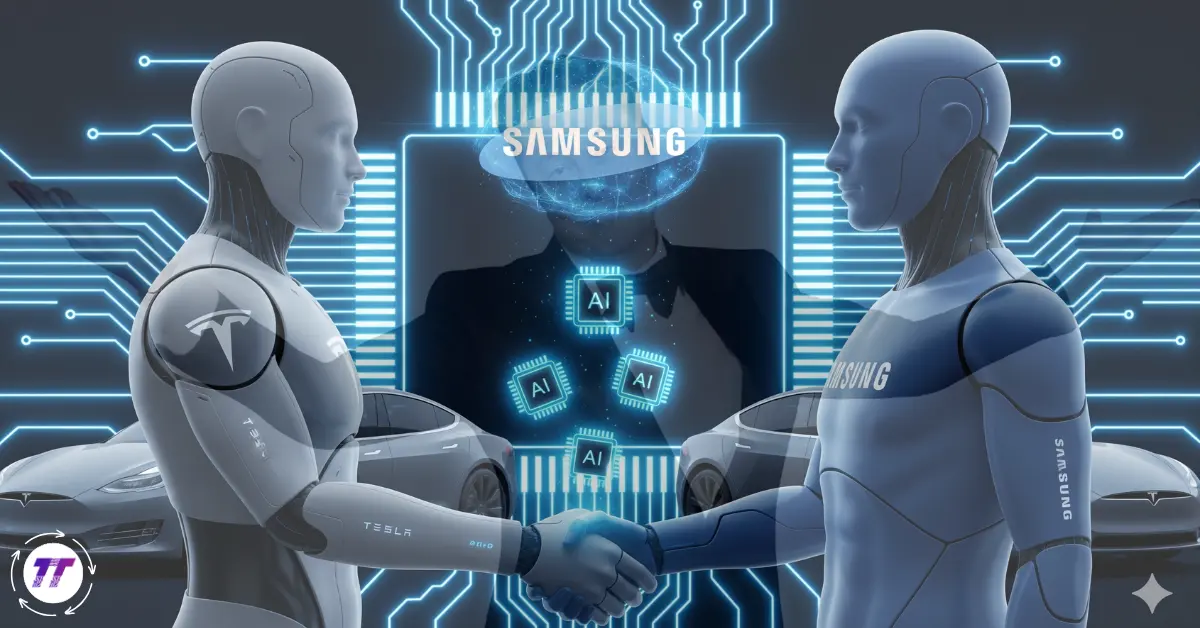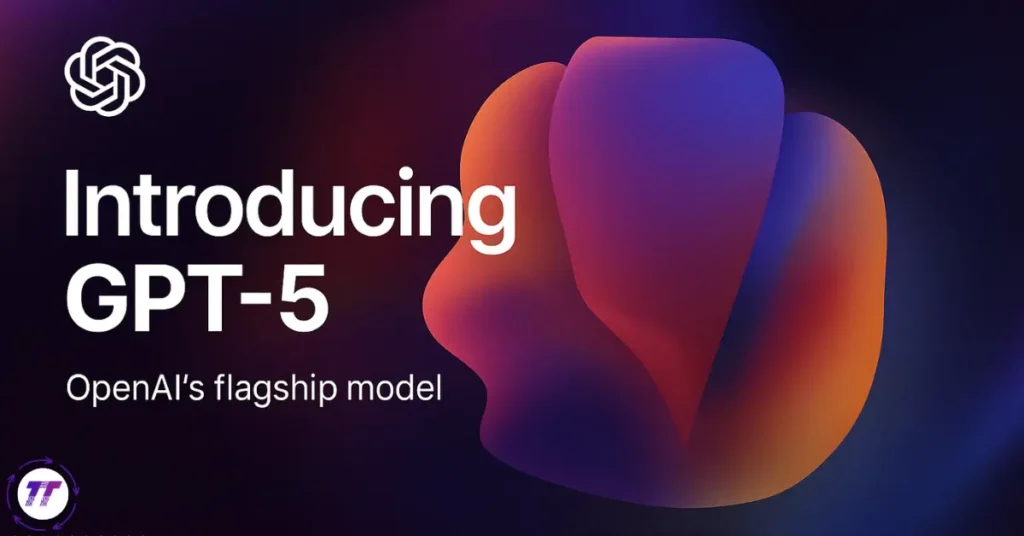Quick Summary
Tesla’s $16.5 billion deal with Samsung may sound massive, but it’s a smart move to secure next-generation AI chips for self-driving cars, robots, and data centers — ensuring Tesla’s future in AI technology while giving Samsung’s U.S. chip factory a huge boost.
Why This Deal Is Making Headlines
When Elon Musk confirmed that Tesla is the mystery client behind Samsung’s $16.5 billion chip order, the tech world stopped to pay attention. This isn’t just about another supply agreement — it’s about the future of artificial intelligence (AI), autonomous driving, robotics, and semiconductor manufacturing.
On the surface, Tesla is buying chips. But at a deeper level, this deal represents:
-
A strategic bet on U.S. chip manufacturing in an era of global supply chain risks.
-
Tesla’s vertical integration push, ensuring its vehicles, robots, and Dojo AI centers run on chips it controls.
-
Samsung’s comeback story, reviving a struggling U.S. fab in Texas with a landmark client.
Let’s break down what this deal means — not just for Tesla and Samsung, but for the entire tech ecosystem.
What Exactly Happened? (Beginner Guide)
Here’s the news simplified:
-
Who’s involved?
Tesla (EV & AI company) + Samsung Electronics (South Korean tech giant). -
What’s the deal?
Tesla signed a $16.5 billion, 9-year agreement for Samsung to produce AI6 chips, the company’s upcoming custom semiconductors. -
Where will they be made?
At Samsung’s new Taylor, Texas semiconductor plant. -
When does production start?
Around 2026, with volume shipments likely by 2028, lasting through 2033/34. -
Why now?
Tesla wants secure access to advanced AI chips for its self-driving cars, Optimus robots, and Dojo supercomputers.
In short: Tesla is locking down the brainpower for its future machines.
Why It Matters for Tesla
1. Securing the Brains of Self-Driving Cars
Tesla’s dream of Full Self-Driving (FSD) relies on ultra-powerful chips. These chips process terabytes of real-world driving data in real time. The AI6 chips will be the next evolution, running Tesla’s autonomous systems faster, cooler, and more efficiently.
2. Powering the Dojo Supercomputer
Tesla’s in-house Dojo AI supercomputer is training self-driving algorithms at a massive scale. These new chips will also support Dojo 2.0, enabling faster training cycles and more sophisticated AI models.
3. Enabling Optimus — The Tesla Robot
Musk has repeatedly said that Optimus, Tesla’s humanoid robot, could eventually be bigger than its car business. Optimus will need small but highly capable AI chips to “think” and act safely in the real world. The Samsung deal ensures a secure pipeline for this vision.
4. Vertical Integration
By designing its own chips and controlling production, Tesla reduces reliance on NVIDIA and AMD. Musk even called the $16.5B deal “the minimum,” hinting Tesla’s chip consumption could double or triple.
Why It Matters for Samsung
1. Reviving the Texas Foundry
Samsung’s $17 billion Taylor, Texas fab had been underutilized, struggling to attract major clients. Tesla’s deal turns it into a flagship project, validating Samsung’s U.S. strategy.
2. A Revenue Boost
The deal is worth 7–8% of Samsung’s annual revenue — a staggering single-client contract that stabilizes its foundry business.
3. Competing with TSMC
TSMC (Taiwan Semiconductor Manufacturing Company) dominates the high-end chip market. Winning Tesla gives Samsung a high-profile edge, proving it can manufacture advanced AI chips at scale.
4. Aligning with U.S. Policy
The U.S. CHIPS Act incentivizes domestic semiconductor production. Samsung’s Tesla contract shows it’s aligned with Washington’s push to reduce reliance on Asian fabs.
Tesla’s AI Chip Roadmap (AI4 → AI5 → AI6)
| Generation | Manufacturer | Location | Timeline | Use Case |
|---|---|---|---|---|
| AI4 | Samsung | Korea & other fabs | Active now | Tesla vehicles & FSD |
| AI5 | TSMC | Taiwan & Arizona | ~2026–2027 | Interim upgrade |
| AI6 | Samsung | Taylor, Texas | 2028–2033/34 | Next-gen AI for cars, robots, Dojo |
This roadmap shows Tesla hedging bets between TSMC (AI5) and Samsung (AI6), ensuring supply security.
Bigger Picture: Why This Deal Is a Game-Changer
1. The Geopolitical Angle
-
The U.S. wants semiconductor independence from Taiwan amid China tensions.
-
Tesla partnering with Samsung in Texas aligns with U.S. national security goals.
-
It reduces risk from a potential Taiwan–China conflict.
2. Competitor Comparison: TSMC vs Samsung
-
TSMC: World leader in chip yield and reliability.
-
Samsung: Struggled with yields but gaining ground with Tesla’s trust.
-
Tesla is effectively forcing competition, which could speed up innovation.
3. Ripple Effects on EVs and AI
-
Other automakers (GM, Ford, BYD) may push for similar chip deals.
-
The EV industry’s future hinges on AI chips, not just batteries.
-
Tesla now controls its “battery” for intelligence — the chip.
4. Industry Supply Chain Boost
Suppliers like Graphjet Technology (graphene/graphite from agricultural waste) could benefit. Tesla’s demand may create entire new supply chains in the U.S., supporting jobs and innovation.
Real-Life Analogy
Think of Tesla cars as human brains on wheels. The current chips are like the brain of a teenager: fast but still developing. The new AI6 chips are the brain of a PhD genius, capable of processing thoughts faster, learning better, and making safer decisions.
This deal ensures every Tesla has that genius brain — built in America.
FAQs
Q1: What chips is Tesla buying from Samsung?
Tesla is buying AI6 custom chips, designed for self-driving cars, robots, and AI supercomputers.
Q2: Why is the deal worth $16.5 billion?
That’s the baseline contract value through 2033. Musk says actual demand may be several times higher.
Q3: When will production start?
Samsung’s Texas plant begins operations in 2026, with AI6 mass production expected by 2028.
Q4: How does this help Samsung?
It revives Samsung’s struggling Texas fab, brings in 7–8% of revenue, and helps it compete with TSMC.
Q5: What does this mean for Tesla’s future?
It ensures a stable U.S. chip supply for Full Self-Driving, Optimus robots, and Dojo — making Tesla less reliant on outside chipmakers.
Q6: Does this affect other automakers?
Yes. It pressures rivals to secure chip partnerships, shifting the auto industry into a new era where chips, not engines, decide competitiveness.
Conclusion
Tesla’s $16.5 billion chip deal with Samsung is more than a contract. It’s a strategic blueprint for the future of AI-driven industries:
-
Tesla secures the brains of its machines.
-
Samsung gets a lifeline and prestige boost.
-
The U.S. strengthens its domestic chip resilience.
As Musk hinted, this is “just the beginning.” Expect chip orders to multiply as Tesla expands into robotics, autonomous logistics, and AI supercomputing.
👉 If you’re an investor, tech enthusiast, or entrepreneur, keep your eyes on Tesla’s AI roadmap. The next decade won’t just be about electric cars — it will be about who controls the chips that power intelligence itself.


